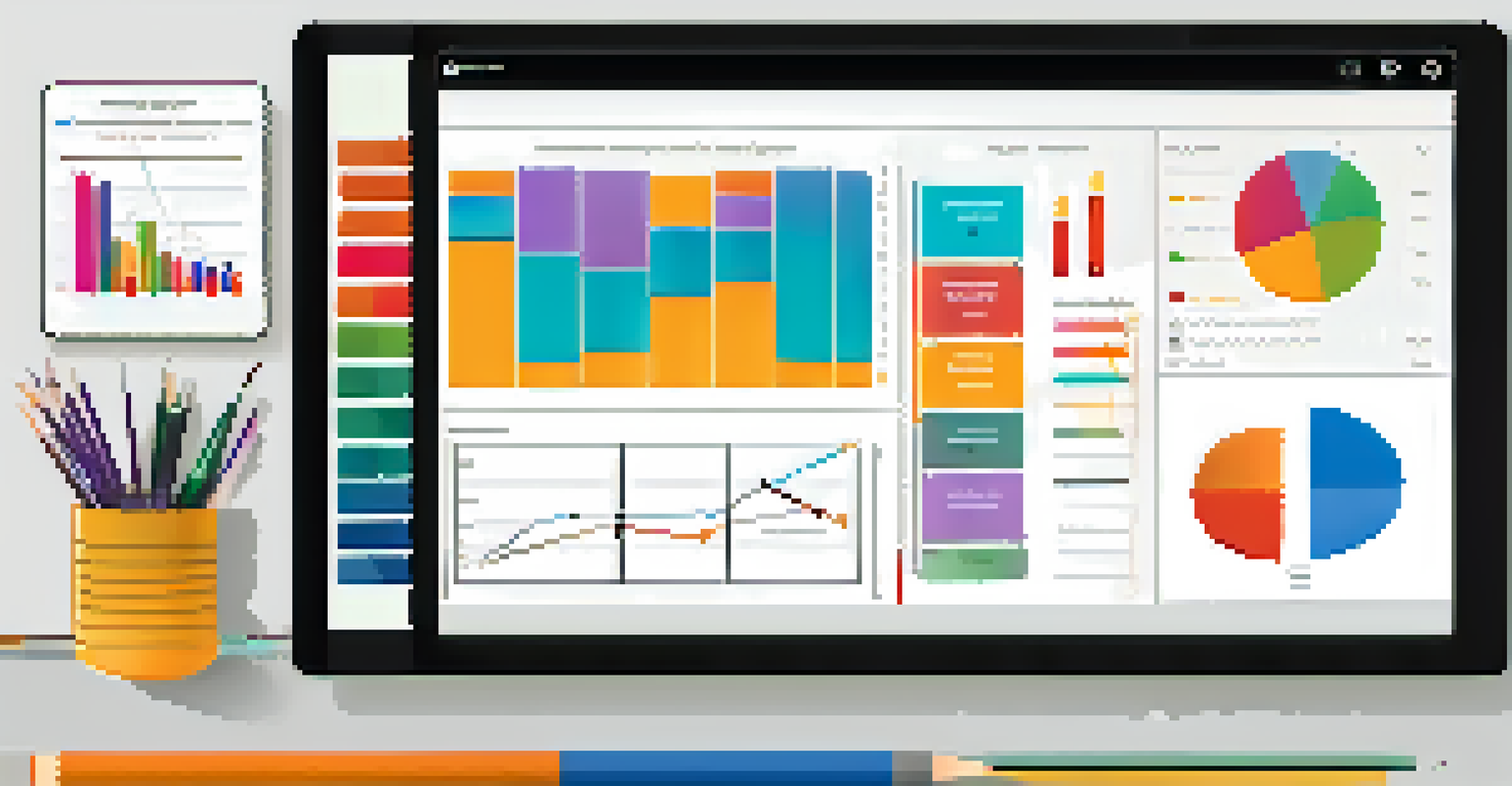How to Assess Your Current Skills and Experience

Understanding the Importance of Skill Assessment
Assessing your current skills and experience is crucial for personal and professional growth. It helps you identify your strengths, areas for improvement, and potential career paths. By understanding where you stand, you can make informed decisions about your future.
The only way to do great work is to love what you do.
Think of it as taking stock of your toolbox before starting a project. If you don't know what tools you have or need, how can you build anything? Skill assessment sets the foundation for your career development.
Moreover, in today’s competitive job market, being aware of your skills allows you to effectively communicate your value to employers. It empowers you to tailor your resume and interviews to showcase your most relevant abilities.
Reflecting on Your Past Experiences
Start by looking back at your past experiences. Consider jobs, volunteer work, internships, or even personal projects that have contributed to your skill set. Write down your roles and responsibilities to get a clearer picture of what you've accomplished.

For instance, if you managed a team project, think about the skills you used: leadership, communication, or problem-solving. These reflections act like breadcrumbs leading you to your core competencies.
Skill Assessment Fuels Growth
Assessing your skills helps identify strengths and areas for improvement, setting a foundation for career development.
Additionally, don't shy away from including informal experiences, such as organizing community events or mentoring someone. Every experience counts and can highlight transferable skills that are valuable in various contexts.
Identifying Key Skills in Your Industry
Next, research the key skills relevant to your industry. Each field has particular competencies that are in high demand, and knowing them can guide your assessment. Utilize job descriptions, industry reports, and professional networks to pinpoint these skills.
The future belongs to those who believe in the beauty of their dreams.
For example, if you’re in tech, skills like coding languages, data analysis, or project management might be essential. This insight allows you to compare your current skill set with industry standards.
By identifying these key skills, you can also discover gaps in your capabilities, which opens up opportunities for further learning and growth.
Utilizing Self-Assessment Tools
There are numerous self-assessment tools available that can help you evaluate your skills objectively. These tools often include quizzes, surveys, and frameworks designed to assess various competencies. They can provide valuable insights that you might overlook on your own.
For instance, platforms like 16Personalities offer personality assessments that can highlight strengths and areas for improvement. This can be particularly helpful in understanding how your personality traits align with your skills.
Utilize Feedback for Insight
Seeking feedback from peers and mentors can reveal blind spots in your self-assessment and strengthen professional relationships.
Using these tools can also foster a sense of accountability, encouraging you to take actionable steps towards skill enhancement based on the results.
Seeking Feedback from Peers and Mentors
Another effective way to assess your skills is to seek feedback from peers, mentors, or supervisors. They can provide an outside perspective on your strengths and areas for growth that you may not recognize yourself. Engaging others in this process can reveal blind spots in your self-assessment.
Consider setting up informal meetings or feedback sessions where you can discuss your skills and seek constructive criticism. This collaborative approach not only helps you gain valuable insights but also strengthens your professional relationships.
Remember, feedback is a gift. Embrace it with an open mind and use it to refine your self-assessment further.
Setting Goals for Skill Development
After evaluating your skills, it’s time to set clear goals for development. These goals should be specific, measurable, achievable, relevant, and time-bound (SMART). Setting goals gives you a roadmap to follow as you work on your skills.
For instance, if you identify public speaking as an area for improvement, a SMART goal might be to join a local Toastmasters club and give a speech within three months. This approach transforms vague aspirations into actionable steps.
Set SMART Goals for Improvement
Establishing specific, measurable, achievable, relevant, and time-bound goals guides your skill development and keeps you motivated.
Regularly reviewing and updating your goals keeps you motivated and focused on your growth journey.
Continuously Reassessing Your Skills
Skill assessment isn't a one-time event; it's a continuous process. As you gain more experiences and as industries evolve, regularly reassessing your skills is essential. This ensures that you stay relevant and competitive in your field.
Consider scheduling regular intervals, such as every six months or annually, to reflect on your skill set and experiences. This routine allows you to track your progress and adjust your development plans as needed.

Ultimately, viewing skill assessment as an ongoing journey will not only enhance your career but also boost your self-confidence and adaptability in a dynamic job market.